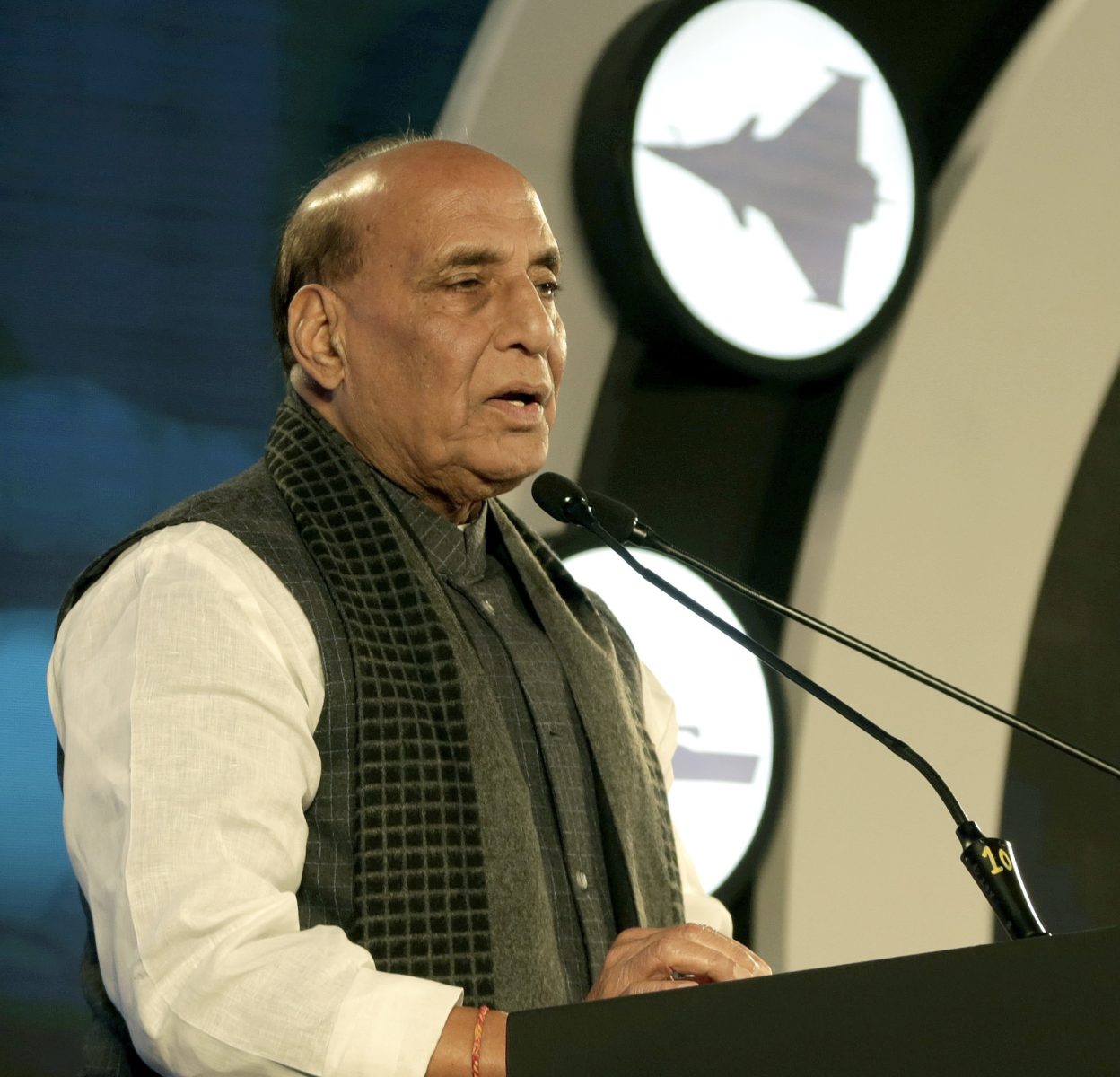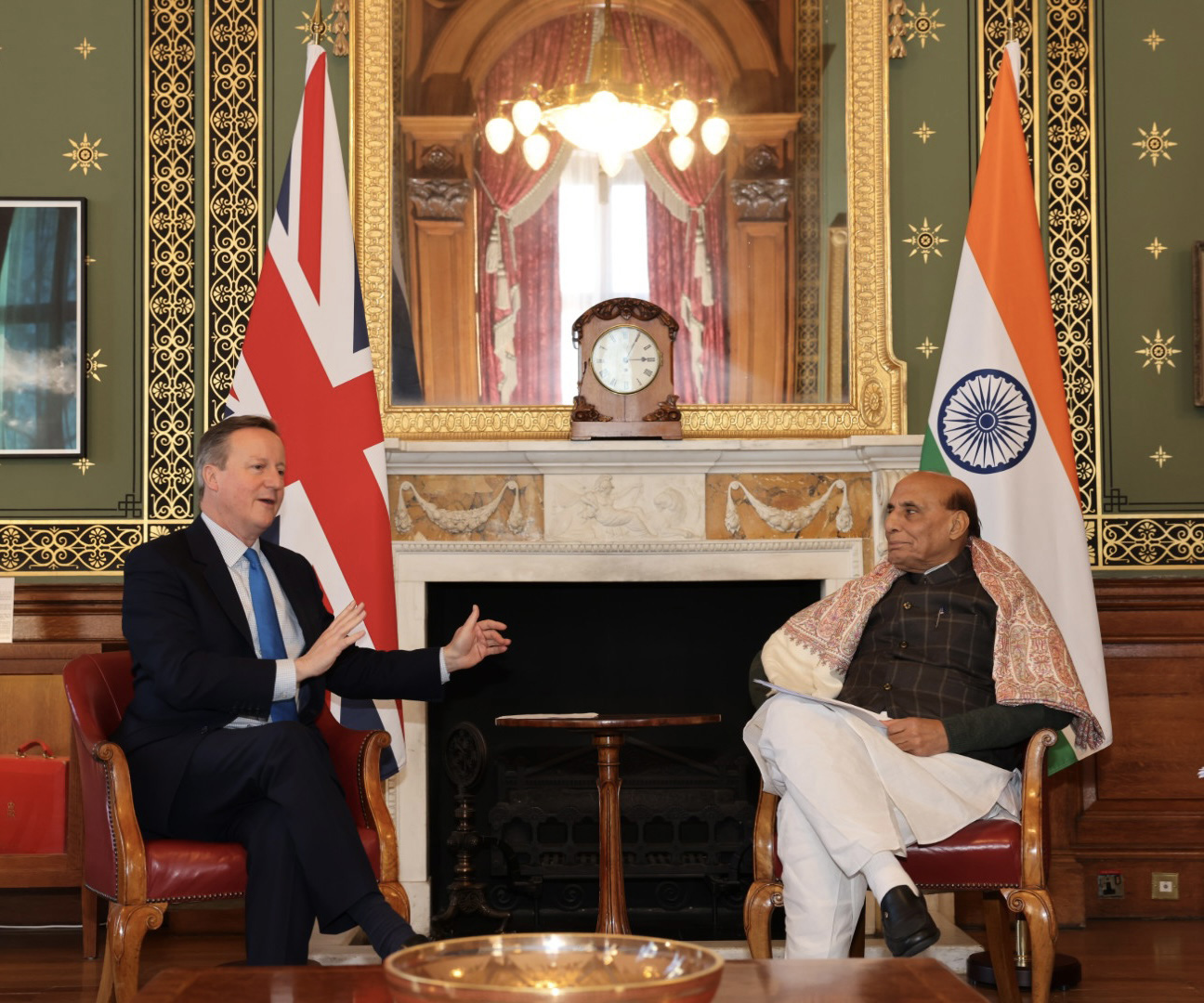Raksha Mantri inaugurates Kalpana Chawla Centre for Research in Space Science & Technology
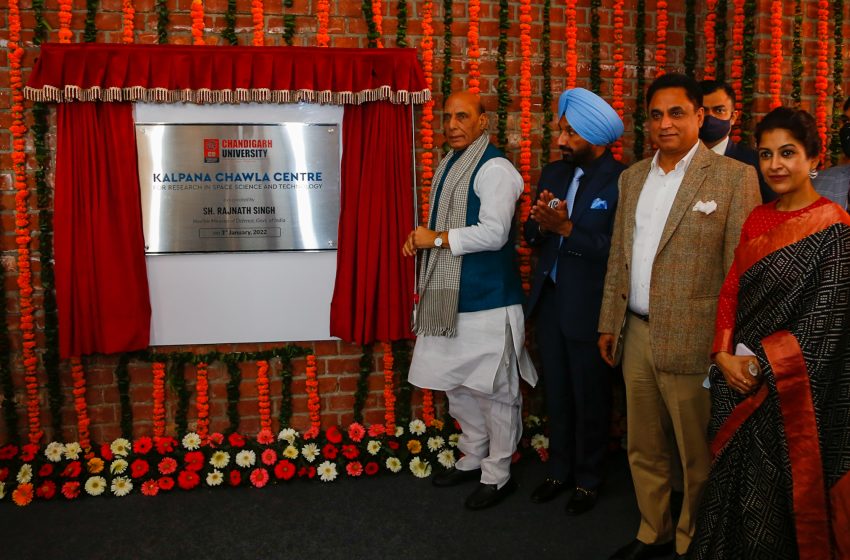
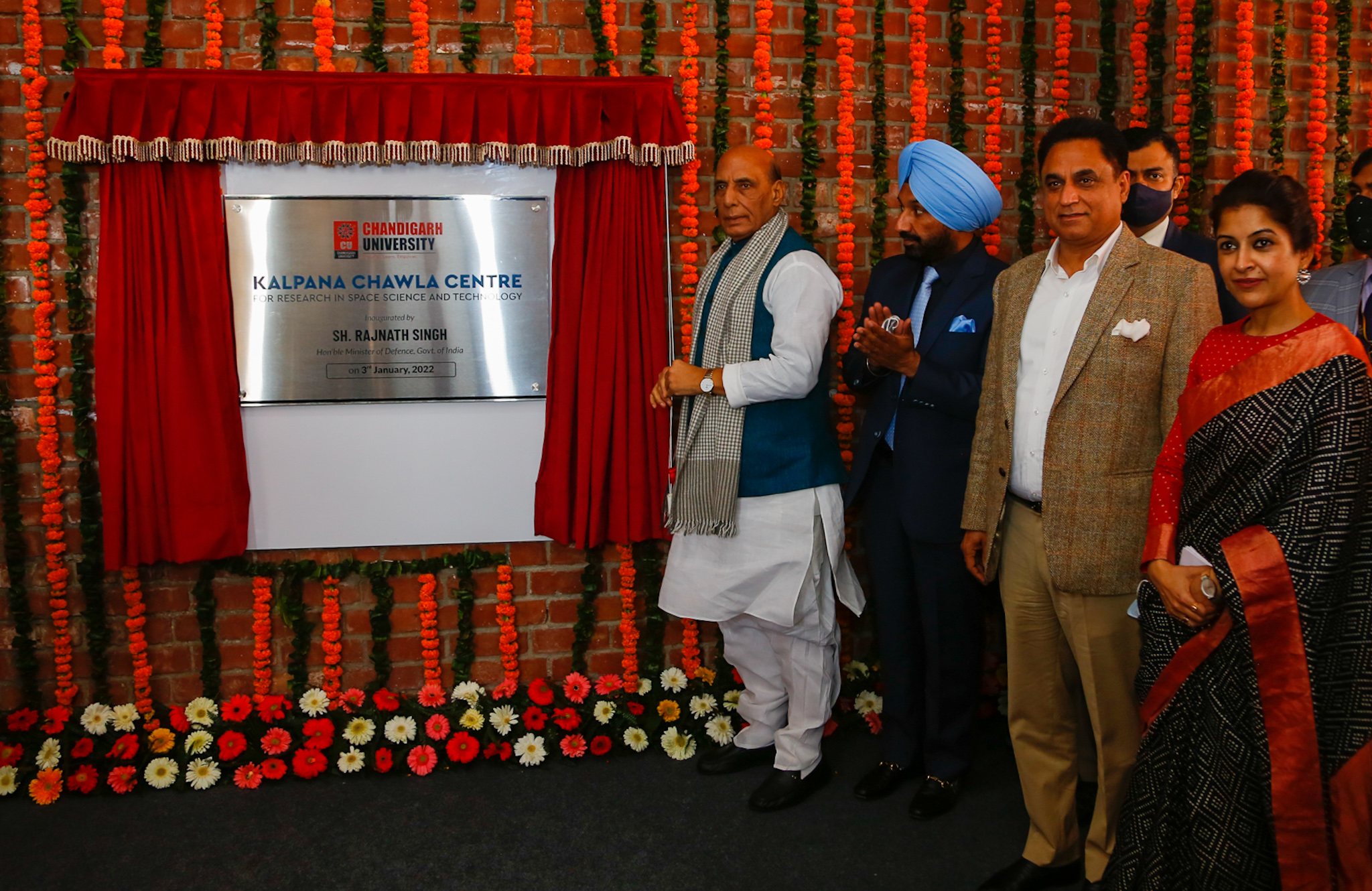
New Delhi, Jan 03, 2022: Raksha Mantri Rajnath Singh inaugurated Kalpana Chawla Centre for Research in Space Science & Technology (KCCRSST) at Chandigarh University on January 3. He also launched a Scholarship Scheme, worth Rs 10 crore for the wards of Defence Personnel of the three Services.
In his address, Singh described the establishment of the Research Centre as an important step towards strengthening the space sector of the country by stressing that it is only through these efforts that India can become a leader in future technologies.
He likened the KCCRSST with ‘pride of India’ Kalpana Chawla, hoping that this research facility would touch new heights of success, similar to the remarkable achievements of the late India-born astronaut who brought universal recognition to her country of origin.
“In the 21st century, the future of India can be secured only when you have a gleam in your eyes to reach the stars and planets. More Indians like Aryabhatta, Vikram Sarabhai, Satish Dhawan and Kalpana Chawla will emerge from amongst you all if you eye different planets and constellations,” the Raksha Mantri told the students present on the occasion.
Underlining the importance of the space sector in today’s times, Shri Rajnath Singh said, it is deeply connected with mapping, imaging and connectivity facilities, speedy transportation, weather forecast, disaster management as well as border security, adding that it played a crucial role in keeping the world connected during the COVID-19 pandemic, from testing to data-transfer & analyses.
The Raksha Mantri added that the Government is laying special emphasis on promoting the use of space-based applications through every sector. Use of geo-tagging for roads and other infrastructure in villages, monitoring of development works in remote areas through satellite imagery, and identifying problems related to crops and fields for farmers is helping the government in many ways, he added.
Rajnath Singh called for working towards development of futuristic technologies such as Artificial Intelligence, Internet of Things, Big-Data and Block-chain for the overall development of the Nation. He stressed that progress in space technology will develop scientific temper in the youth of the country and India will move forward in frontier technologies.
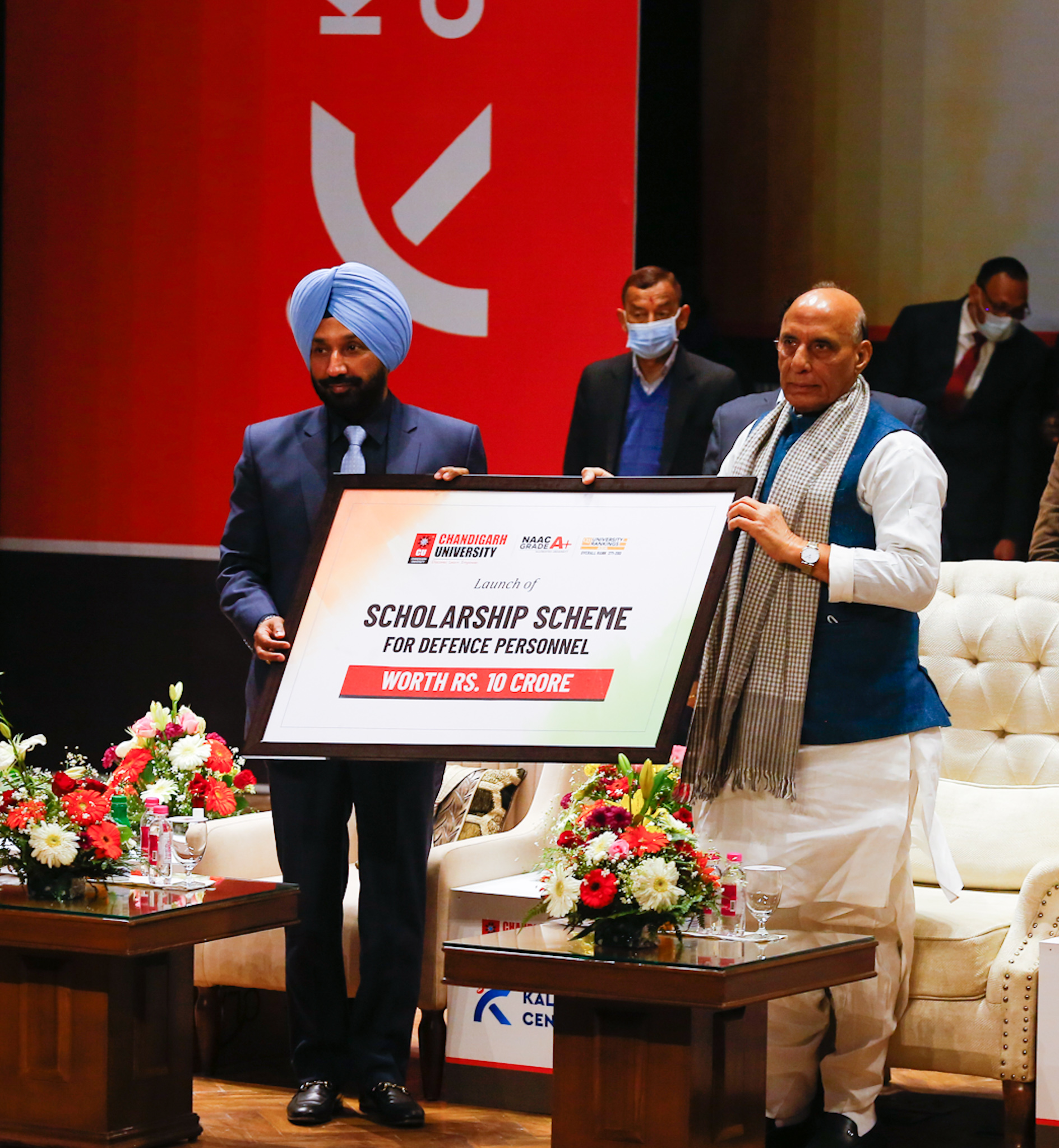
Remembering late India-born astronaut Kalpana Chawla, Rajnath Singh described her as a symbol of women empowerment, who took a flight beyond imagination. He urged the people to maintain her zeal & enthusiasm and motivate their daughters to go ahead & touch unimaginable heights, echoing the Government’s vision of increased participation of women in all sectors.
The CUSat will be among the 75 student-built satellites to be launched into space on the eve of the 75thIndependence Day in 2022. The Chandigarh University has joined the list of 13 institutes like Indian Institute of Technology (IIT) Kanpur, IIT Bombay and became the first university in North India to design and develop its own satellite. For the project, 75 students of the University have been working on the Chandigarh University Student Satellite Project under the guidance of eminent Indian scientists.
With the launch of CUSat, Punjab will become the first border state in India to have its own satellite in space. The launch of the university’s nanosatellite – CUSat will prove to be an important step for the country, as it will collect data related to border intrusion detection, agriculture, weather forecasting, natural disaster forecasting, which will be helpful in research and study of various problems in these areas. In addition, the GCS will help develop satellite research facilities and launch satellites in countries that do not have developed satellite technology.
Chancellor of Chandigarh University S Satnam Singh Sandhu, scientists, faculty and students were present at the inauguration of the KCCRSST.


